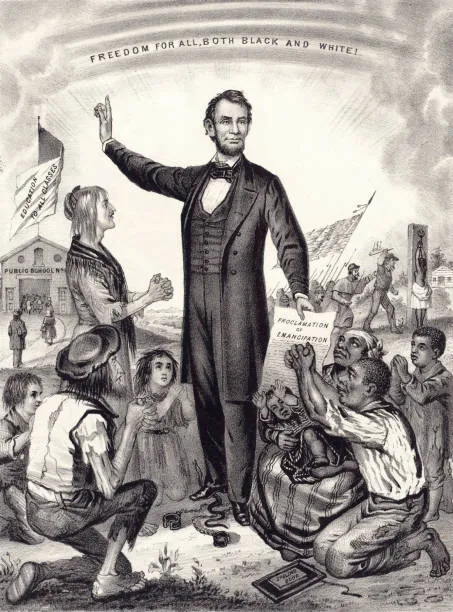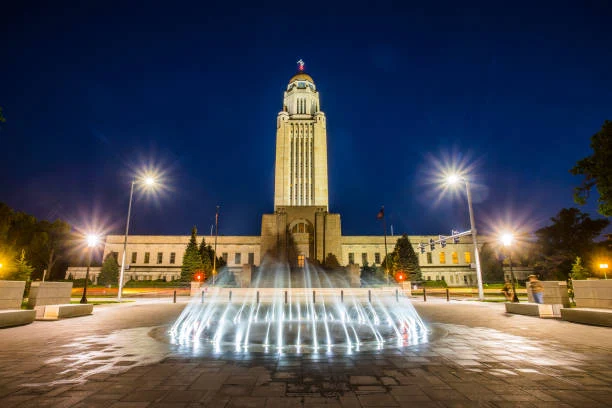Abraham
Lincoln is widely considered to be one of the greatest American presidents, and
his life and legacy continue to inspire and fascinate people today. Born in a
log cabin in Kentucky in 1809, Lincoln rose from humble origins to become a
lawyer, politician, and ultimately, the 16th President of the United States.
He is perhaps best known for his leadership during the Civil War, his fight against slavery and discrimination, and his famous speeches and writings, including the Emancipation Proclamation and the Gettysburg Address. In this article, we will explore the life, accomplishments, and impact of Abraham Lincoln, and reflect on his enduring legacy in American history and culture.
Early
life and career:
Abraham Lincoln was born on February 12, 1809,
in a one-room log cabin in Hardin County, Kentucky. His parents, Thomas Lincoln
and Nancy Hanks, were farmers who moved frequently throughout Lincoln's
childhood. When he was seven years old, his family moved to Indiana, where they
lived on a homestead carved out of the wilderness.
Despite his lack of formal education, Lincoln
was an avid reader and self-taught student. He worked odd jobs as a young man,
including as a clerk, surveyor, and postmaster, before launching his political
career in his early 20s.
In 1832, Lincoln ran for a seat in the
Illinois state legislature as a member of the Whig Party. Although he lost the
election, he gained valuable experience and went on to serve four terms in the
legislature between 1834 and 1842.
In 1846, Lincoln was elected to the U.S. House
of Representatives, where he served one term before returning to his law
practice. He became a successful attorney in Illinois, specializing in
corporate law and representing railroads and other businesses.
During this time, Lincoln also met and married Mary Todd, with whom he would have four children. Despite a sometimes tumultuous marriage and personal life, Lincoln continued to rise in prominence and influence, becoming a leading figure in the new Republican Party and a vocal opponent of the expansion of slavery in the United States.
Presidency
and Civil War:
In 1860, Lincoln was elected President of the
United States, becoming the first Republican president in American history. His
election triggered a crisis in the southern states, many of which threatened to
secede from the Union if Lincoln took office. When he was inaugurated in March
1861, several states had already seceded, and tensions were high between the
North and the South.
Despite his lack of military experience,
Lincoln proved to be a skillful commander-in-chief during the Civil War. He
navigated the complex political and military landscape of the time, and made
key strategic decisions that helped the Union gain the upper hand in the
conflict.
One of Lincoln's most significant actions
during the war was the Emancipation Proclamation, which he issued in 1863. This
document declared that all slaves in Confederate territory were to be considered
free, and helped to turn the tide of the war in favor of the Union. Although it
did not immediately free all slaves in the United States, it paved the way for
the eventual abolition of slavery after the war.
Lincoln was also known for his powerful speeches
and writings during the Civil War. His most famous speech, the Gettysburg
Address, was delivered in 1863 and remains one of the most iconic speeches in
American history. In it, Lincoln paid tribute to the Union soldiers who had
died at the Battle of Gettysburg, and called for a renewed commitment to the
principles of democracy and equality.
Despite his many achievements, Lincoln faced
significant opposition and criticism during his presidency. Many people were
unhappy with his policies and actions, and some even accused him of being a
tyrant. Nevertheless, Lincoln remained committed to his vision of a united and
free United States, and worked tirelessly to achieve it.
Unfortunately, Lincoln's presidency was cut short when he was assassinated in April 1865, just days after the Confederate army surrendered. His death was a tragic loss for the country, but his legacy as a visionary leader and champion of freedom and equality has endured to this day.
Legacy
and impact:
Abraham Lincoln's legacy is perhaps best encapsulated by his own words: "that this nation, under God, shall have a new birth of freedom -- and that government of the people, by the people, for the people, shall not perish from the earth." Throughout his life, Lincoln worked tirelessly to uphold these principles and ensure that the United States remained a beacon of democracy and equality.
Lincoln's impact on American society and
government was profound. His leadership during the Civil War helped to preserve
the Union and end slavery, paving the way for the civil rights movement and the
eventual triumph of equality and justice for all Americans. He also played a
critical role in shaping the modern presidency, expanding the powers and
responsibilities of the office and setting a high standard for future
presidents to follow.
Today, Lincoln is remembered and celebrated in
many ways. The Lincoln Memorial in Washington, D.C., is one of the most iconic
and beloved monuments in the country, and his image appears on everything from
the penny to the five-dollar bill. His speeches and writings continue to
inspire people around the world, and his life and legacy are the subject of
countless books, films, and other works of art.
Despite the many challenges and controversies that have arisen since Lincoln's time, his vision of a united and free America remains as relevant and inspiring as ever. As we continue to strive towards a more perfect union, we can look to Lincoln's example and be reminded of the enduring power of democracy, equality, and the human spirit.
Conclusion:
In conclusion, Abraham Lincoln was one of the
most remarkable figures in American history, whose leadership and vision helped
to shape the course of the country and the world. From humble beginnings to the
presidency, Lincoln demonstrated an unwavering commitment to democracy,
equality, and justice, and worked tirelessly to ensure that these ideals were
upheld.
Although he faced significant opposition and
challenges during his lifetime, Lincoln remained steadfast in his principles
and ultimately succeeded in preserving the Union and ending slavery. His legacy
has endured for generations, inspiring countless people to continue the fight
for freedom, justice, and equality for all.
As
we reflect on Lincoln's life and legacy, we can draw inspiration from his
example and renew our own commitment to the principles that he so passionately
espoused. By working together and striving towards a common goal, we can
continue to build a more perfect union and create a brighter future for
ourselves and generations to come.





0 Comments